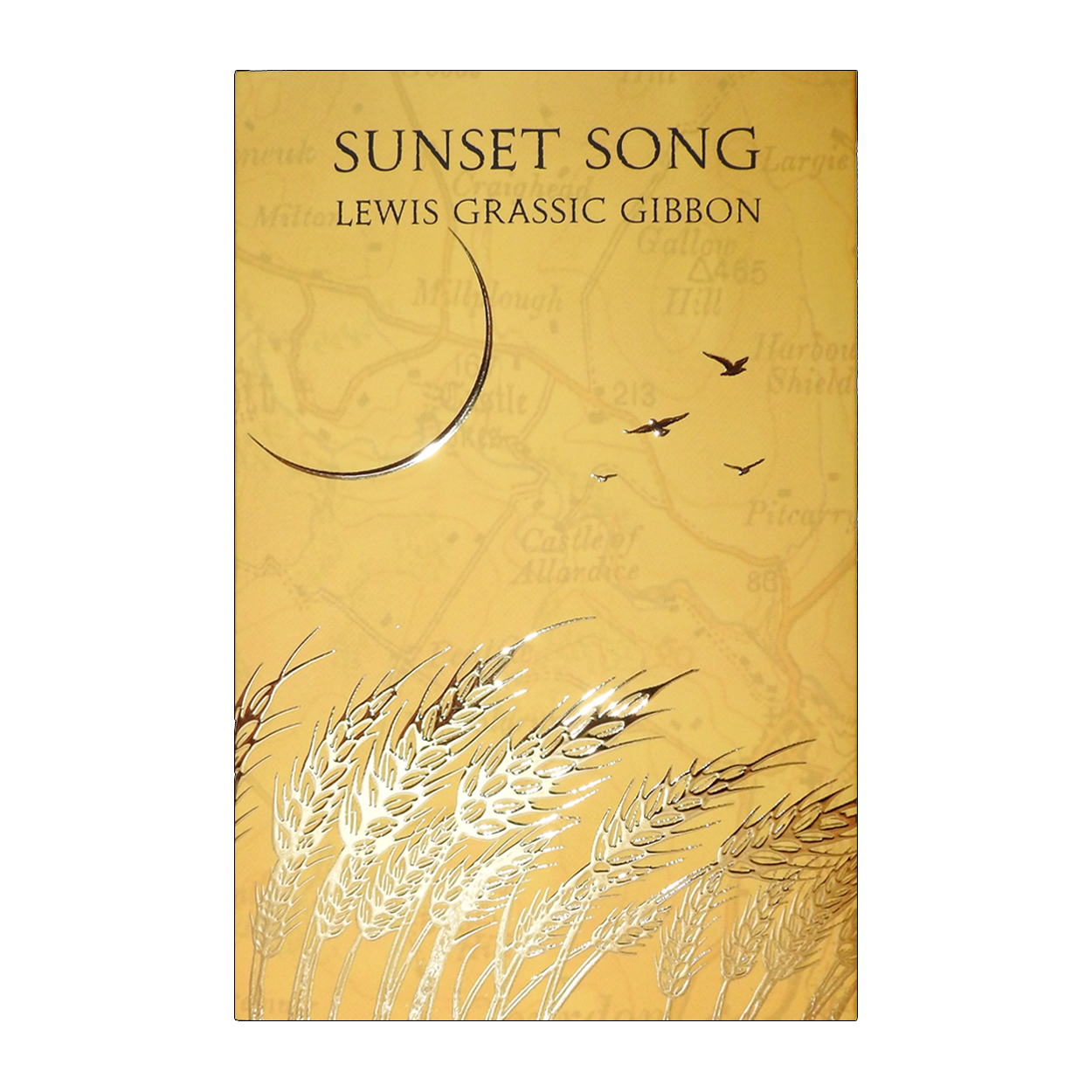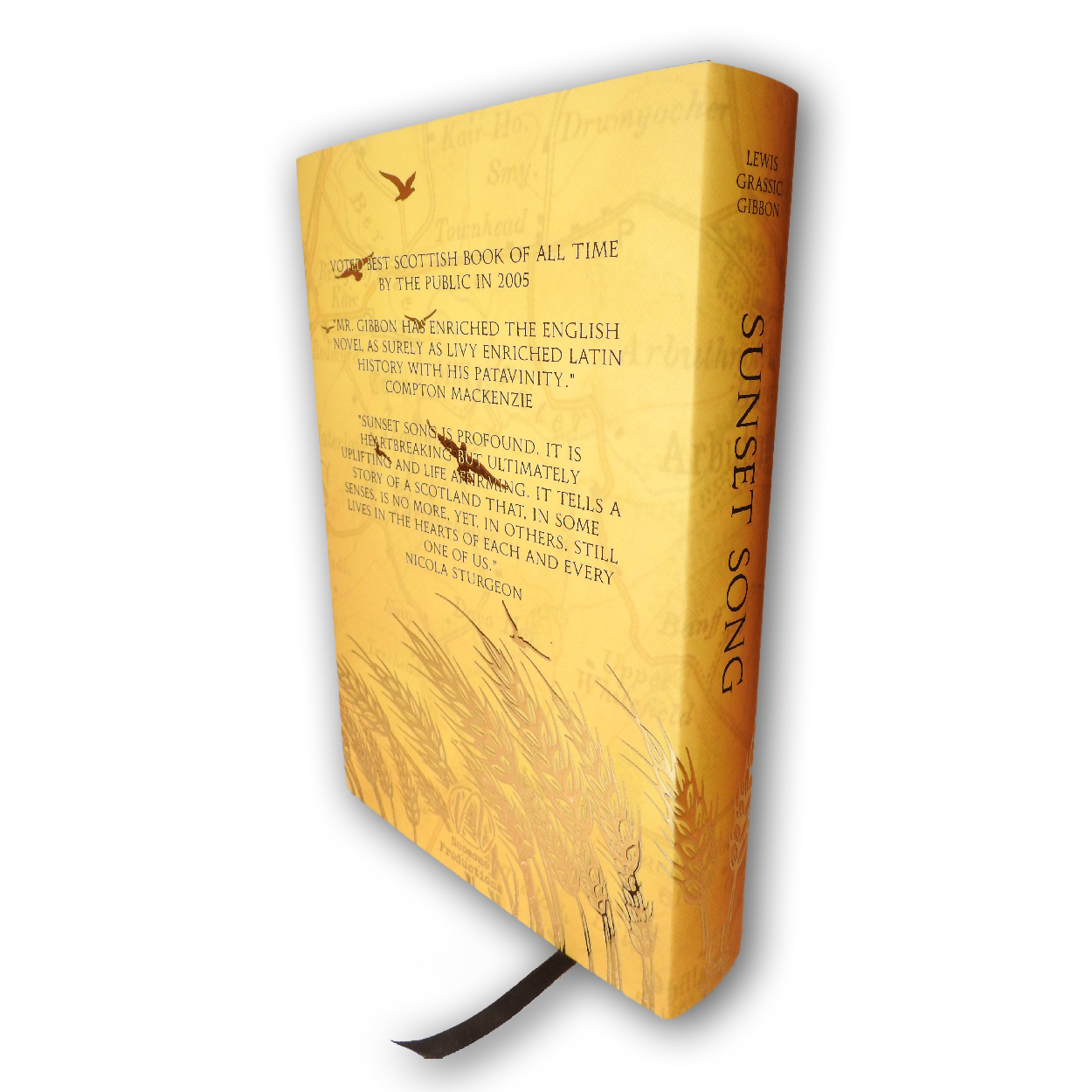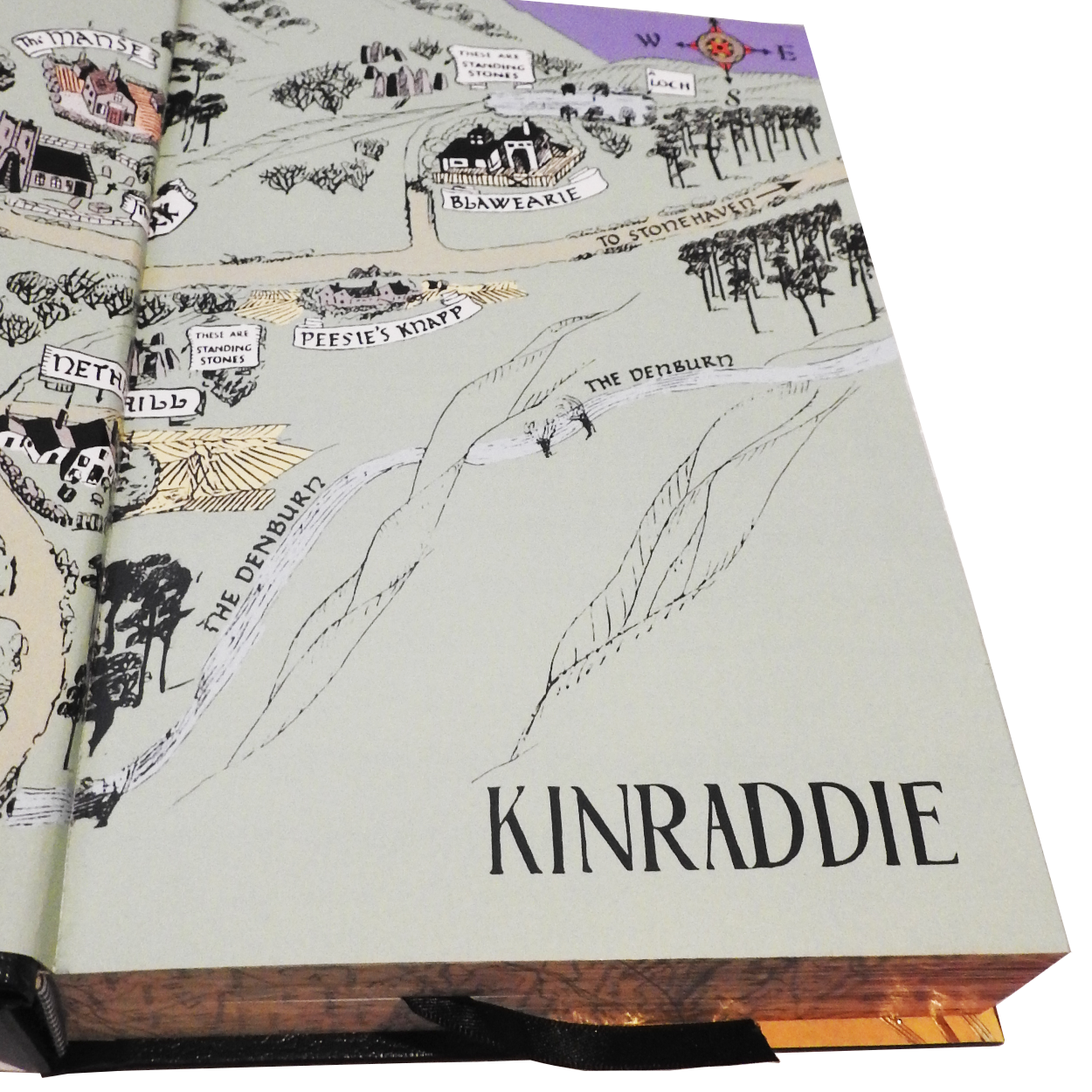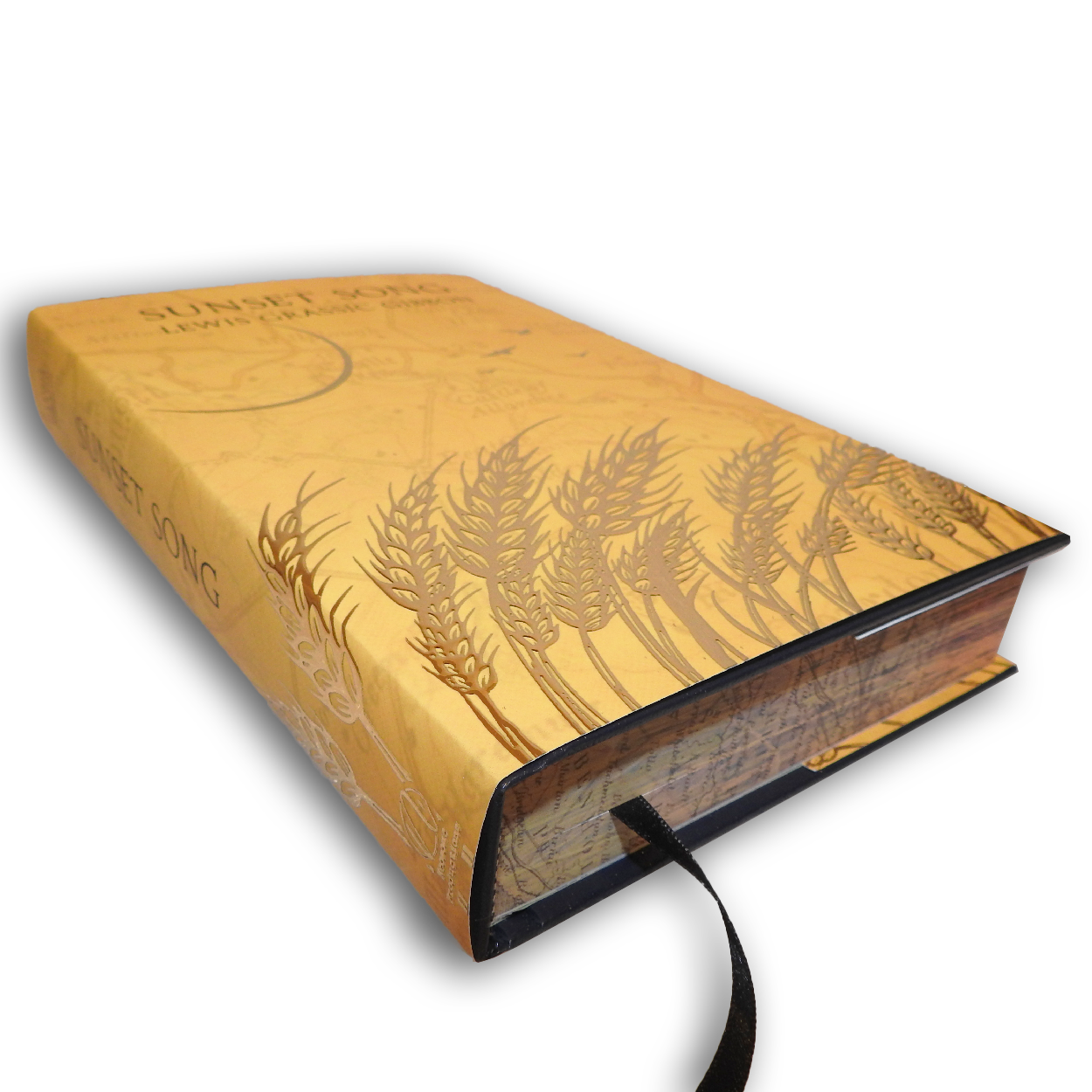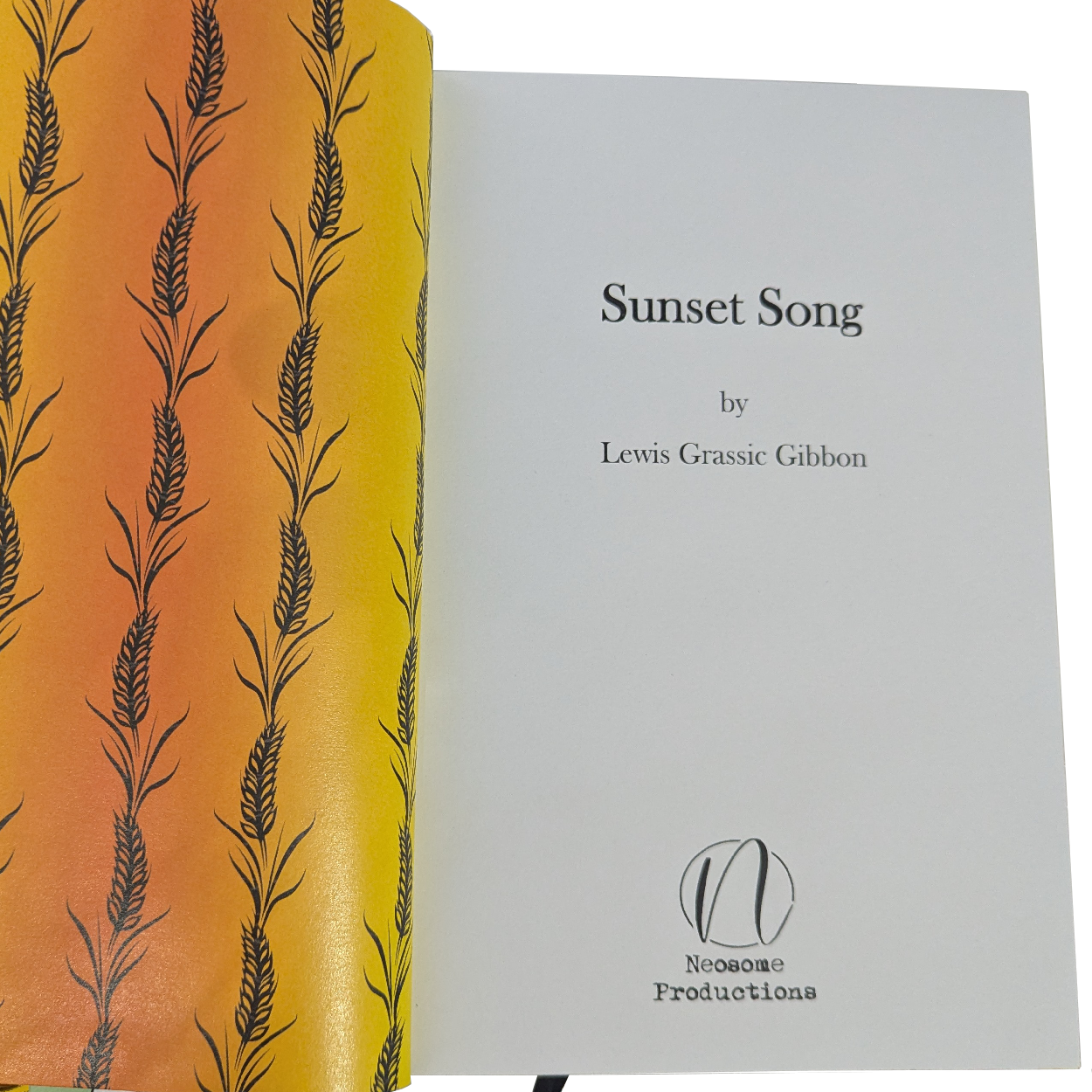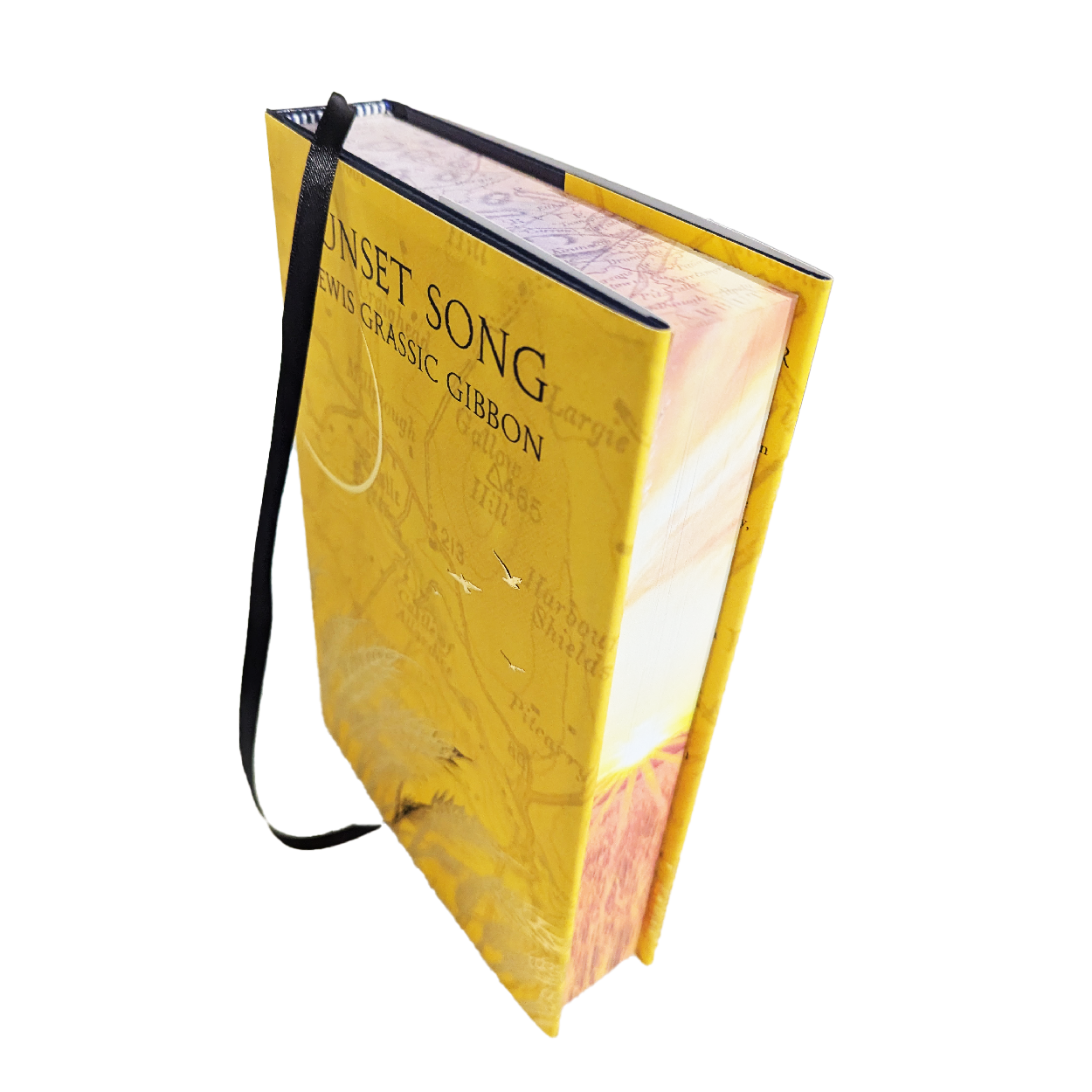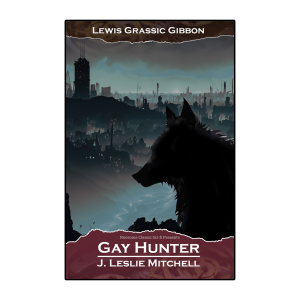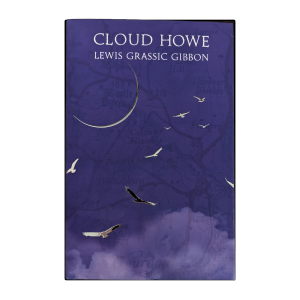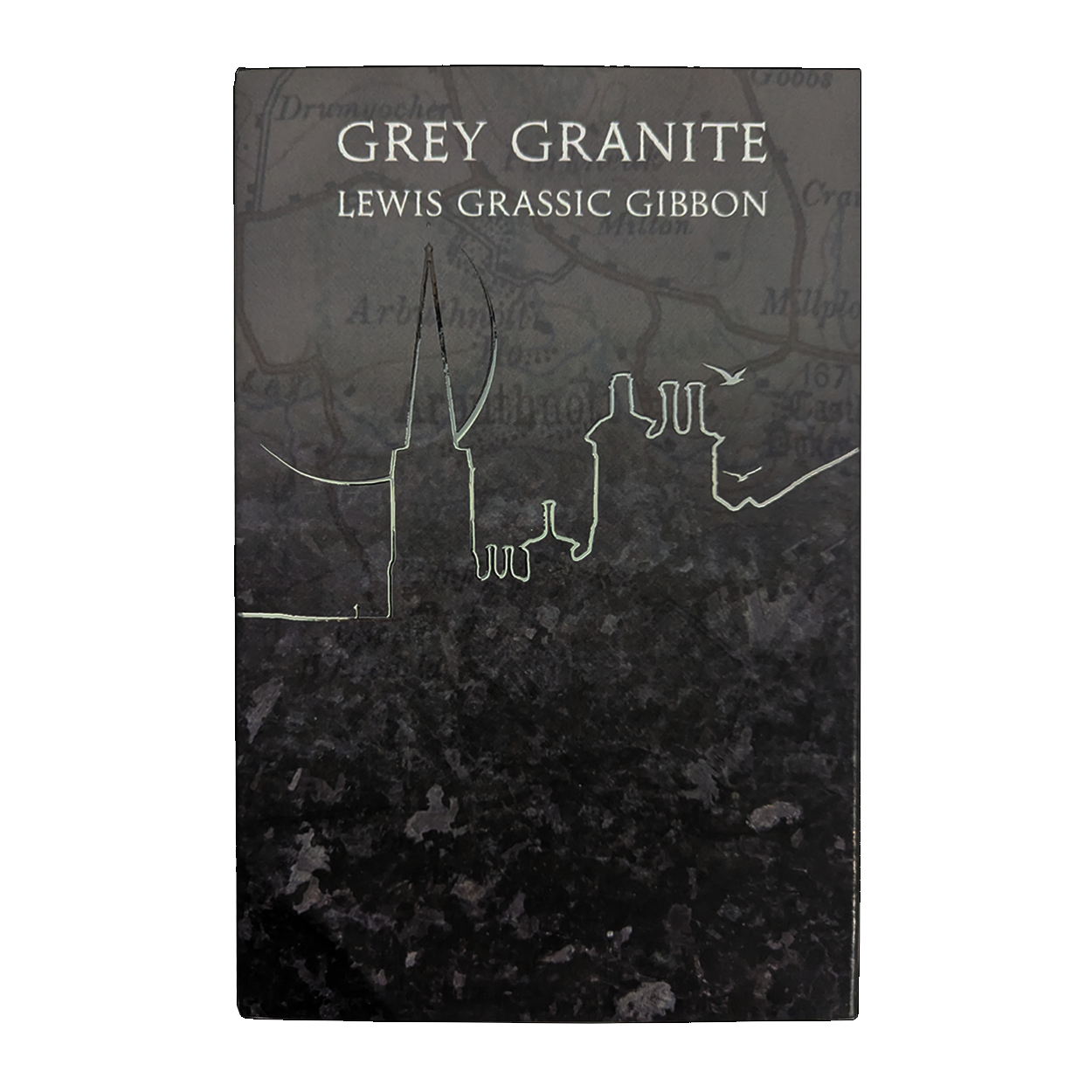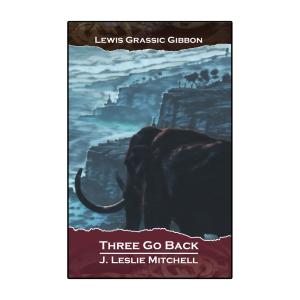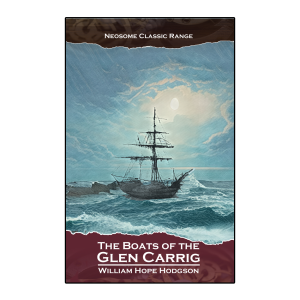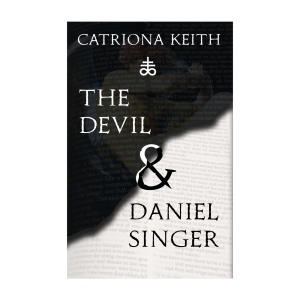Sunset Song (Collectors Edition) by Lewis Grassic Gibbon
Voted best Scottish book of all time by the Scottish public in 2005.
Faced with a choice between a harsh farming life and the world of books and learning, Chris Guthrie chooses to remain in her rural community, bound by her intense love of the land. But everything changes with the arrival of the First World War and Chris finds her land altered beyond recognition.
In lyrical prose, Sunset Song evokes village life in the early twentieth century and offers a powerful portrait of a land and people in turmoil.
The whole trilogy as well as a special collectors boxset will be available soon.
About the author:
Lewis Grassic Gibbon (1901-1935)
Lewis Grassic Gibbon, born James Leslie Mitchell on February 13, 1901, in Auchterless, Aberdeenshire, was a Scottish writer whose works have had a lasting impact on Scottish literature. He is best known for his Scots Quair trilogy, which includes the novels Sunset Song (1932), Cloud Howe (1933), and Grey Granite (1934). These books vividly depict the life and struggles of the Scottish rural working class in the early 20th century and are considered some of the most significant works of Scottish fiction.
Gibbon was a versatile writer, known not only for his exploration of Scottish rural life but also for his forays into speculative fiction. Writing under his real name, James Leslie Mitchell, he produced several science fiction novels, including Gay Hunter (1934) and Three Go Back (1932) – both available from www.neosome.com. These novels, though less known than his Scots Quair trilogy, demonstrate his imaginative scope and willingness to tackle complex social and philosophical issues.
Despite his relatively short life—he died of peritonitis at the age of 33—Gibbon’s work has endured, securing his place as one of Scotland’s greatest literary figures. His ability to capture the voice and spirit of Scotland, combined with his innovative approach to narrative and genre, has left a lasting legacy. Today, his work is celebrated for its emotional depth, linguistic richness, and its powerful evocation of a way of life that has largely disappeared.
Gibbon’s influence extends beyond literature, inspiring adaptations in theater, film, and television, and continuing to be studied and cherished by new generations of readers and scholars. His work, particularly Sunset Song, is often included in discussions of the greatest Scottish novels of all time.

